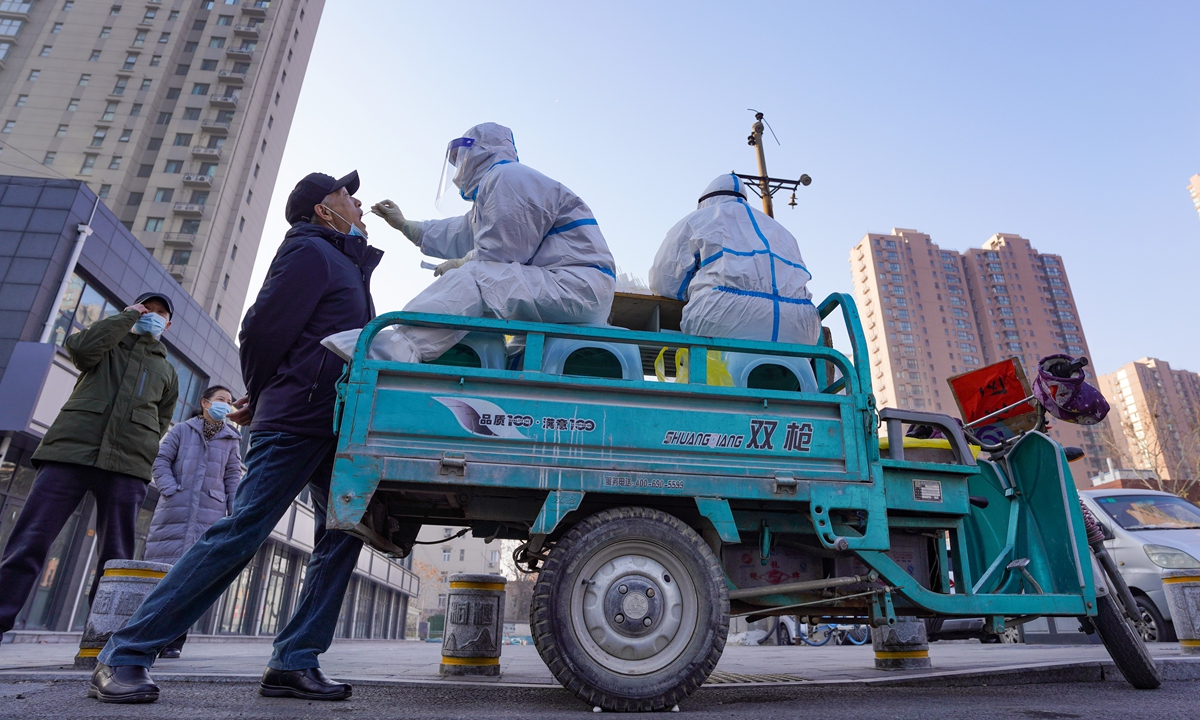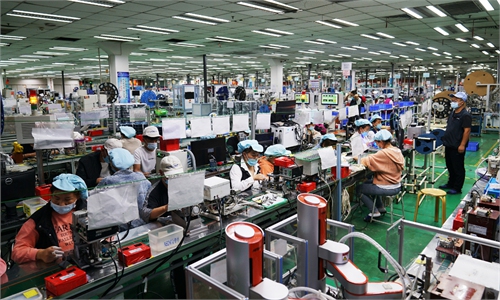Death of 4-month-old baby girl unrelated to emergency medical treatment: Zhengzhou health authorities

Medical staff sit in an electro-tricycle and conduct nucleic acid testing for residents in Zhengzhou, Central China's Henan Province, on January 15, 2022. Zhengzhou will roll out mass testing for residents in eight communities on January 17, amid the latest COVID-19 outbreak. Photo: VCG
An investigation by local authorities in Zhengzhou, Central China's Henan Province, showed on Sunday that the death of a 4-month-old baby girl wasn't because of the "refusal of diagnosis by the emergency doctors and their 1.5-hour-delay in arriving at the scene" as reported online. However, the investigation has revealed that some medical staff have a weak sense of responsibility and emergency response capabilities and lack of special care for vulnerable groups such as babies.
The baby who died was only 4 months and 16 days old, and was born prematurely by cesarean section at 29 weeks. She had been treated in an incubator for more than 60 days after birth, and was hospitalized in the local hospital for medical treatment of a lumbar hemangioma one month ago, read the statement from local health authorities.
The baby's death has attracted the attention of Chinese netizens because the little girl was being quarantined in a hotel with her father after her mother was transferred to a medical center after testing positive for COVID-19.
The father initially called emergency services as his daughter was vomiting milk and not eating, and hurriedly coordinated an emergency medical technician to visit. The emergency center told visiting doctors to transfer the patient to designated hospitals without waiting for nucleic acid results if they needed emergency treatment.
The baby's condition remained stable for the next half day, but the father tested positive for nucleic acid and they had to be transported to a designated hospital together.
However, three hours after being transferred to a designated hospital, the infant's condition suddenly deteriorated and she died after being rescued. During the rescue, the doctor told the father that his daughter's condition was dangerous and the risk of death was high, and the baby's father expressed his understanding.
Local authorities have criticized, educated and punished some medical workers, and stated that they will instruct relevant departments to do a good job in dealing with the aftermath of their families in a timely manner. It promises to focus on the diagnosis and treatment process of key groups, and do its best to ensure the safety and health of the people.
Global Times

